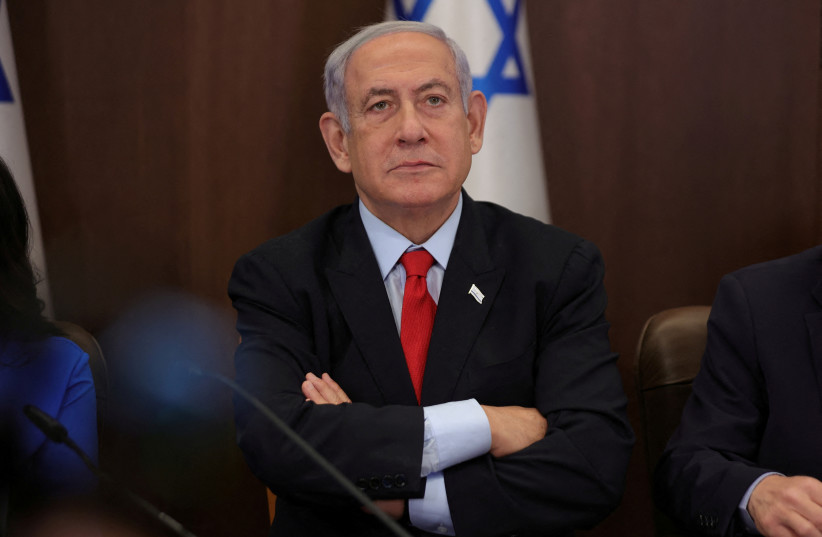Israel’s future in the new Middle East depends on Palestinian peace – opinion
“Citizens of Israel: Tonight, I am happy to bring you great news.” Along with many other Israelis, I had anxiously tuned in to listen to the prime minister, but to my surprise, what rolled off Benjamin Netanyahu’s tongue was Shimon Peres’s “New Middle East” prophecy. Netanyahu described the ambitious project President Joe Biden announced at the G20 meeting: a network of railways and trade routes that will connect India with the Middle East and Europe – passing through Saudi Arabia, the Emirates, Jordan, and Israel. Netanyahu hailed the project as a “breakthrough” that promises the “greatest cooperation in our history.” He called it “a historic” move that will lead to “a unique and unprecedented regional and global integration and cooperation”… “turning a dream into reality.” An elated Netanyahu concluded that the project “will change the face of the Middle East.”
Peres – the seventh anniversary of his death was recently marked – must be smiling up there. Thirty years ago, he published his book The New Middle East in which he described, among other things, the transportation networks to be built in the region: “the laying of railroads and the construction of highways to connect the countries of the region to each other and the entire region to Africa and Europe by land.” Peres even detailed the specific rail routes he believed would encourage trade and tourism, and allow, among other things, travel from Israel “to Saudi Arabia and the Persian Gulf”.
Peres’s New Middle East: A subject of ridicule
The Peres vision of the “New Middle East” was met with tons of right-wing ridicule. He was described as naive, dreamy, delusional, an astronaut floating in outer space whose feet were not planted in the brutal soil of our region. I’ll be honest, despite working alongside Peres and my closeness to the man, I wasn’t exactly swept up by his enthusiasm when he laid out the grandiose future of the Middle East. When I was asked to assist him in writing “The New Middle East” I avoided the offer, and the task was ultimately undertaken by Prof. Arye Naor.
Peres dreamed big. He did not flinch from venomous critique but went on as usual devoting himself entirely to realizing his bold dreams. And now, these dreams are coming true. The process is slow and full of hurdles, but even Peres’ harshest critics must admit that when he painted the picture of the region’s future, signing peace agreements with the countries of the Abraham Accords was well beyond the confines of their imagination, much less real progress toward normalization with Saudi Arabia.
Now, three decades after the publication of the controversial book, some ask whether Netanyahu has adopted Peres’s vision of “The New Middle East.” Not really.

Is Netanyahu adopting Peres’s New Middle East? No
Despite the similar rhetoric, there is a wide gulf between them on a consequential issue: the Israeli-Palestinian conflict. Peres saw the resolution of the conflict as a cornerstone in realizing his regional vision. This was among the most significant considerations behind the Oslo path. Although the Oslo process was torpedoed, the aftereffects of the historic breakthrough with the Palestinians still echo today. Palestinian recognition of the State of Israel paved the way for the peace agreement with Jordan and conferred legitimacy to other Arab countries for normalizing their relations with us.
Unlike Peres, Netanyahu ignores the Palestinian issue. He does not take any diplomatic initiative that outlines a horizon for a permanent solution. Moreover, he dismisses the argument that the continuing occupation is a burden on Israel’s long-term prospects of integrating into the region. Peres’ reasoning was different: leaving the conflict unresolved not only pushes Israel toward a binational reality, it also threatens the stability of the relationships now being nurtured with the Arab world.
The deepening of the occupation and the worsening of the outbreaks of violence between Israel and the Palestinians, particularly on the Temple Mount, could unravel the delicate fabric of Israel’s relations with the countries of the region. Sooner or later Israel will discover that the future of its integration in the new Middle East remains dependent on a viable Israeli-Palestinian settlement based on mutual recognition and a division of the land. This is the logic of Oslo, the logic of Shimon Peres.
The writer, a former director-general of the Foreign Ministry, is a senior fellow at the Jewish People Policy Institute (JPPI). His novel Toronto Junction was recently published by 2sfarim Publishing.





Comments are closed.